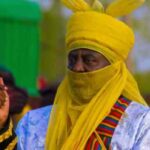Which of these will determine who won the 2023 presidential election? Is it the judiciary, the social media, or the self-appointed prophets? It is not a foolish question. The cases are before the presidential election tribunal. Under our laws, the responsibility for determining which of the presidential candidates – Bola Ahmed Tinubu, Atiku Abubakar or Peter Obi – was the authentic choice of the Nigerian electorate on February 25 rests squarely and legally with the tribunal in the first instance and the Supreme Court of Nigeria in the final instance.
You will not get that impression anymore if you follow the social media and the inanities of the prophets. The social media drop hints daily on the likely outcome of the cases before the tribunal; the prophets drop hints, creating the same impression that they know who won because they have heard from the almighty himself.
Jointly, they have fouled the system and elevated their noisemaking into daily diets of misinformation fed to the eager Nigerian public. The huge problem here is that we are not dealing with empty and irritating noisemaking by the social media and the prophets. We are dealing here with some fundamental problems arising from an electoral system in which the combined decision of the ballot box and ballot paper is now subject to judicial decisions in based on the quirks and the technicalities of the law rather than the choices of the people, however uniformed the decision of the electorate might be.
A fundamental issue raised by all the noisemaking is our inability to conduct elections whose outcomes are not disputed by the losers. It has become an accepted tradition since the generals foisted election tribunals on us in 1979 on the sensible grounds that given the crooked nature of our politics and of our politicians, the will of the people to choose their leaders is criminally and shamelessly subverted before, during and after every election. The tribunals are necessary to prevent or minimise the crass rape of the system and allocate victory to the loser and defeat to the winner. To be fair, they have prevented many an electoral murder. The flip side, and an unfortunate one at that, is that they too have fallen victim to our debilitating national disease that poisons everything in our dear country: corruption.
- Don’t disappoint Nigerians on security, Tinubu tells police cadets
- SDP debunks mass defection of leaders to APC
What has emerged from this is trust deficit in both the system and the electoral umpire whose integrity makes the laundry list of our failures as a nation to rise up to and meet the challenges that confront us. The relentless vilification of the INEC chairman, Professor Mahmoud Yakubu, is consequential to this trust deficit. To impugn his integrity is to impugn the integrity of the commission and raise a huge question mark on its capacity to conduct free and fairness elections. It should not be difficult for you to see how dangerous this is for the nation. An institution is built on the trust of the public. Lack of trust weakens an institution and undermines its capacity to fulfil its mandate under its enabling legal instrument. The politicians know this and exploit it to deepen the trust deficit and frustrate the system and give our democracy a hollow ring.
Our politicians have sabotaged the desire of the people to choose their representatives in the executive and the legislative branches and institute governments of their choice at national and sub-national levels. They have denied the people the right and instead employed the judiciary to determine the choices the people make at the ballot box through legal technicalities. As necessary as they are, both the election tribunal and the higher bench are supposedly interventionists as neutral bodies in electoral disputes. That they have become what they have become is consequent upon the failure of the politicians to play by the rules. The current assault on the integrity of the judiciary is unfortunate but resulted from some of its poor and shocking decisions that would make first year law students wince.
We have to contend with two unwanted intruders, namely, the social media and the prophets. The social media have weaponised fake news and are using it to undermine the integrity of the election tribunals and the larger judiciary. If you follow some of the publications, you should have no difficulties in seeing that they are relentlessly pushing to make the public believe that a certain outcome had been decided well in advance in the case of the presidential election. To prepare the public mind this way is to further foul the system in particular and in general bend the arc of justice and fairness towards hollowness.
The prophets are unwelcome intrusions in our elections. They lie and cover their lies with veneer of faux divine imprimatur. The public tends to take them seriously given that this being a supposedly religious nation in which our individual and collective behaviours are regulated by divine injunctions, these men and women exploit our fears. No one disputes the place of religion in human affairs, but our constitution assigns no responsibility to the almighty in either the conduct of our elections or the resolution of disputes arising therefrom. The attempt to conflate the secular and the sacerdotal must be seen for what it is – fishing in a shallow stream in search of a big fish.
Our politicians go to whatever extent they find necessary to obtain the approval of higher powers in their quest for power. In addition to seeking the divine help in organised religions, they also beat the path to the shrines of the babalawo, amadioha and other traditional gods who have become second tier authorities as necessary fallback positions for them. The fear of losing an election lends itself to desperate acts. So, let it be.
Still, what we cannot ignore is the assumed right of the self-anointed prophets, also known as men of God, to market their lies in a manner that fouls the system. They take mere conjectures proven by probabilities as evidence of their informed prophecies. If, as they claim, they know who, between Obi, Tinubu and Abubakar won the election, they should tell us and not wait for the verdict of the tribunal. This will save all concerned enormous financial expenses flowing into the pockets of lawyers and end the trauma of a nation breathing uneasily on the cliff hanger.
We are paying a stiff price for our reluctance or inability to cultivate what the late Senator Okadigbo called the democratic temperament that should help us define and institute the rules and play by them to make this difficult but beloved form of government live up to its billing as the government of the people instituted by the people for the people. The lack of this temperament is deleterious to our political health and is at the root of our disputed elections. Our ability to cultivate that necessary temperament is held hostage by corruption, the tyranny of wealth and the African big man and by the fact that the easy path to personal fortunes is guaranteed by politics and political power along the crooked path taken as the boulevard to the desired end.

 Join Daily Trust WhatsApp Community For Quick Access To News and Happenings Around You.
Join Daily Trust WhatsApp Community For Quick Access To News and Happenings Around You.

